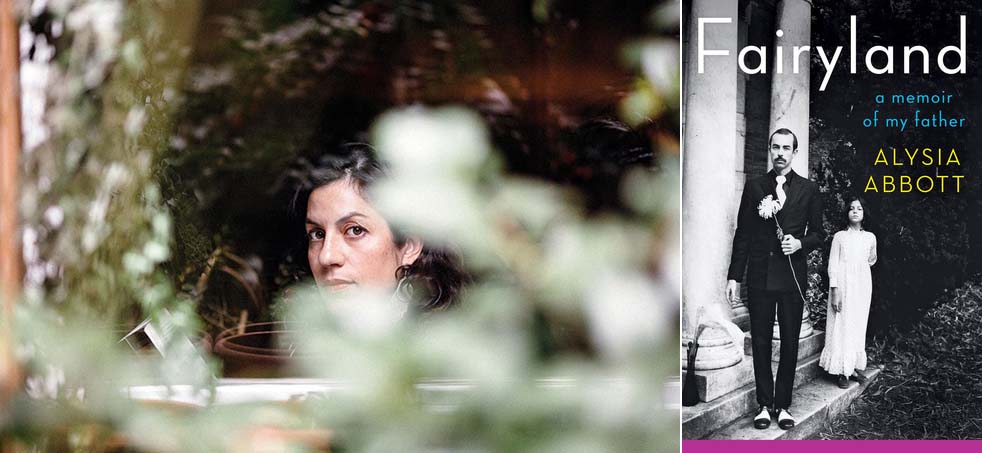
Fairyland, a Memoir by Alysia Abbott, MFA Creative Nonfiction ’03, Adapted for the Big Screen
“It’s a huge honor that anyone would want to take your work and make something from it,” says Alysia Abbott, MFA Creative Nonfiction ’03, whose memoir, Fairyland: A Memoir of My Father was adapted into a feature film starring Emilia Jones, Scoot McNairy, Geena Davis, Adam Lambert, and Cody Fern. “My father was a writer. After he died, I had access to his journals, letters we wrote to each other, and his books. I felt like our story was one I inherited, but I wanted to be a good enough writer to tell that story. I also knew that if I didn’t write it, no one would,” she says. Her affecting memoir, in which she shares her memories of growing up in 1970s San Francisco with a gay single father, at a time when that was rare, came to life in the Schools of Public Engagement’s Creative Writing Program.
“Being at the New School helped me answer questions like: Where do I begin? What do I have to say? How am I going to say it? What works can inspire me?” A course led by Dani Shapiro introduced Abbott to In Dreams Begin Responsibilities by Delmore Schwartz, in which the author imagines his parents meeting before he was born. “It’s nonfiction, because it happened, but he wasn’t there, so it’s a fictionalized account.. It’s imagined, speculated. Dani had us read that; then we had to write our own version of our parents’ meeting.”
“This exercise became an important part of my book,” Abbott says. Sometimes the story you want to tell predates your birth or your memory. With my dad’s journals, I could imagine my parents meeting and I could also research their time in order to make them feel more alive. In that way, a memoirist can use the tools of a fiction writer.”
Charting her progress in ten-year increments—her father died in 1992, she graduated from The New School in 2003, she sold her memoir in 2013, and the film version premiered in 2023—Abbott notes the importance of time for a memoirist, not only to tell a story well but also for the world to be ready to receive that story. “Sometimes good work requires time. You have to be ready. You have to make space for writing alongside the demands of life and work. With memoir, you also have to have enough distance from your project to see yourself as a character, meaning there’s a narrator who’s telling the story and there’s a character who the story’s about. It’s not enough to just say these things that happened to me, and therefore it’s interesting. You have to put the experience into a context that is fresh, with a narrator who has something to say. It took me a long time to find that distance. The book became more interesting when I realized it was about much more than me and my experience but about a larger story, about San Francisco, and men like my dad, and families like ours. I needed distance to be able to see that. I needed to not be in a state of fresh grief.”
By the time Abbott sold the book in 2010, the United States was offering greater acknowledgment of and support for LGBTQ+ people, such as the “It Gets Better” campaign, aimed at combating the bullying of LGBTQ+ youths, which launched around the same time. “That was really a newer idea, and I had this realization that there were popular TV shows like Modern Family, which features gay parents, but what about the history? I don’t think that people knew that there were queer families in the 1970s and 1980s and what that was like from a child’s perspective. I hadn’t seen this story.”
Produced by Sofia Coppola and directed by Andrew Durham, the movie version of Fairyland is arriving a key moment, sharing a vital story at a time when LGBTQ+ rights are being undermined in the United States. “There was an interest in optioning the book within a couple of months of it being released. I knew Coppola’s work, but it was going to be directed by Andrew, who had never directed a film before.” Equating handing over the rights to your work to giving someone the keys to your house, Abbott spoke of the importance of finding someone with a sensibility she could trust. “Andrew didn’t have that filmmaking experience—he’s a photographer—but he’s a gay man who also lost a father to AIDS, so that gave him a lot of insight. He also grew up in the same area and we’re of the same generation, so I felt there’s a lot that would resonate with him.”
Abbott credits the Creative Writing Program with both giving her the tools to be a successful writer and providing a support network, which made the act of writing feel less lonely. “Writing is solitary, because it’s just you and the page. It’s so much easier when you know there are other people trying to do it as well. Finding that community, reading other students’ work, and the influence of these teachers were all necessary to produce the first drafts of what became the book. In the program, you find inspiration and you learn how to become a better writer, but you also find a community that keeps you writing. So when you’re trying to find an agent or when you’re still trying to find the right angle for your story, you keep going.”